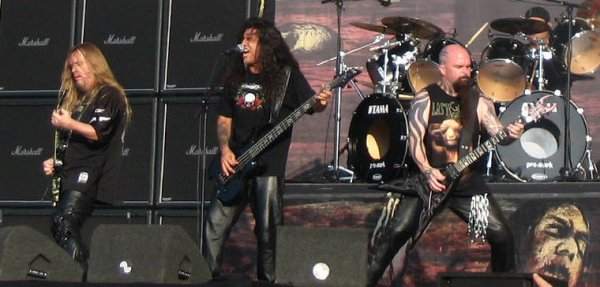The never-ending debate about the alleged link between violence and video games has hit the news yet again.
I’ll state right now I’m not a big believer that movies, video games, books and music cause violence. I think when people claim they do, it’s usually a knee jerk reaction to a tragedy, or a nationwide problem.
Back in the fifties, comic books were blamed for juvenile delinquency, (the censors against comics were saying Batman and Robin were gay, and that Wonder Woman was “a sadistic lesbian”), artists like Ozzy and Slayer came under fire when the Parents Music Resource Center wanted albums labeled, and violent movies came under the hammer like never before post-Columbine.

History often repeats itself like this, and I agree with Frank Zappa, who fought the PMRC in 1986, that it’s usually the first step to censorship – not protecting our children – like the powers that be claim they’re doing.
Nevertheless, in covering video games over the years, the subject has definitely come up from time to time.
I’ve spoken to horror make-up master Tom Savini (Dawn of the Dead, Friday the 13th, Creepshow) a number of times over the years, and he did some consulting on video games.

At the time, horror films and video games were crossing over, and Savini said with horror inspired games, “You’re not warping anybody’s heads. What’s the police one where you’re blasting hoods? Grand Theft Auto? Isn’t that the one where you’re picking up hookers? We need to escape from that, not delve deeper into it. There’s no retribution for killing a zombie. You’re protecting yourself and society from this deadly plague-like walking death that used to be us.”
John Milius, screenwriter of Apocalypse Now, and writer/director of Conan the Barbarian and Big Wednesday, also was also the screenwriter for the Medal of Honor: European Assault game.

Milius’s movies have come under fire for violence, and the critics “always treated me as if I was a threat to western civilization, so I have big pride in that. I was the Sonny Barger of cinema.”
Milius said he strove to be responsible with violence in his movies, and when asked if he felt violence in game was harmful, he said, “Well, you can sit there and say it’s not harmful, it’s just cathartic or whatever, or it’s all harmful. And you’re right in both cases. I mean it definitely has an effect on human beings to machine gun people for hours on end.”
David Sheff is the author of Beautiful Boy, a harrowing account of his son’s meth addiction, and he’s also written extensively for Playboy, while also chronicling the world of video games with the book Game Over, which covered the Nintendo empire.
Sheff told me, “I don’t believe violent games make kids violent, but I think repetitive games, and most violent games are very repetitive, make kids more dull (laughs). The thing that bothers me about the violence is I think it’s easy for programmers to make games more compelling by making the graphics better and the violence more realistic, but the game play isn’t any more sophisticated. I think it’s easier to make games violent, the same way it’s much easier to make a violent movie that gets attention than it is to tell a subtle story.

“I would suggest that video game makers would do better for us and for our kids if instead of relying and violence and shock value, that they go for more subtle stuff, and try to create more fanciful stories. I’m not a fan of the violent games, I don’t let my kids play ’em, I don’t want them to get scared and get grossed out, but I don’t think they’re evil incarnate. At the same time, I would call on video game makers to try and do better.”






